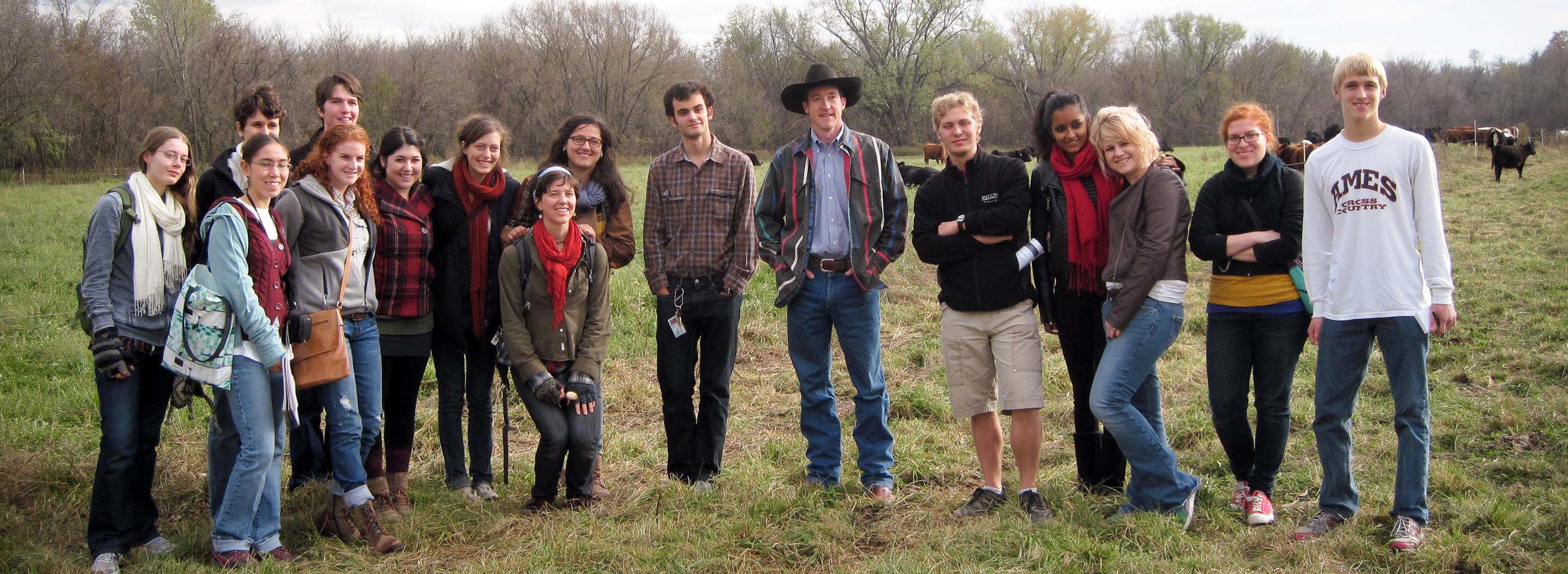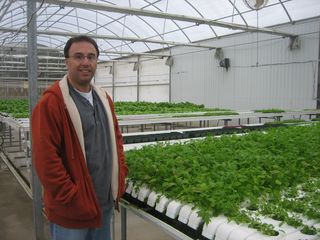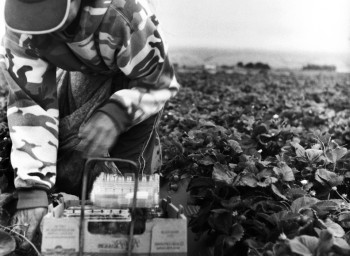02/12/10 Last week was “Food Week: Eat to Live” at the University of Pennsylvania. The students at Penn truly stepped up to the plate, not only helping to coordinate one event, but 6!! It was truly a spectacular week, full of delicious food and passion for food issues. Here’s how it all happened: In December I was connected with Professor Mary Summers, who teaches “Politics of Food”. Professor Summers, in turn, connected me with about 20 very determined student activists—most of them didn’t know each other, but all cared about different food issues. A few of them had been throwing around the idea of doing an entire week of Food issues at Penn, but nothing concrete had yet materialized. We did a giant conference call; I told them I’d be there the week of Feb 1—and Food Week […]

The Bon Appétit Blog
+ Blog Categories

Bon Appétit Fellows Kick Off Tour!
- Blog
After months of planning, the two other Fellows and I kicked off our “Story Behind the Food” tour last week. Over the next few months, we hope to visit with hundreds of students who eat in Bon Appétit college cafés every day to spread the word about BAMCO sustainability initiatives like Farm to Fork, the Low Carbon Diet, and our work with the Coalition of Immokalee Workers in Florida. My first two stops were LeTourneau University in Longview, TX and St. Edwards University in Austin, TX. At LeTourneau, a small but enthusiastic group of students on the school Senate joined me, BAMCO General Manager Doris Wilson and Executive Chef Paul Riley for my presentation. They were very excited about the Student Garden Guide and also wanted to follow up about how they can educate their peers on labor and environmental […]

The People at Bon Appétit
- Blog
As the East Coast Fellow for Bon Appétit Management Company, I recently went to Washington University in St. Louis to work on a project related to sustainable food sourcing. While there, I realized it takes a lot of people to make “sustainable food” a reality. So, here’s a little tribute to the Bon Appétit folks at WashU, working to get good food on students’ plates. Enjoy!
Farming Internships: Vital or Illegal? The Answer is Both.
- Blog
Check out Bon Appétit Management Company’s series on the business of sustainable agriculture on TriplePundit.com, an innovative new-media company for the sustainable business community. In our 9th post, "Farming Internships: Vital or Illegal? The Answer is Both.", Midwest Fellow Dayna Burtness explores the legality and necessity of farming internships. Read the whole post here.
Bon Appetit nourishes Silicon Valley cafeterias with locally-grown food
- Blog
In this video on CBS Interactive's SmartPlanet, take a tour of Yahoo's kitchen to see a number of sustainability initiatives in action. Innovations include locally farmed food, our Low Carbon Diet Calculator that measures food intake against carbon footprint, and a food dehydrator that converts excess food scraps into mulch.
Connecting Agricultural Labor Issues with Environmental Sustainability
- Blog
In the most recent BAMCO post on Triple Pundit in a series on the business of sustainable agriculture, VP Maisie Greenawalt considers the many intricacies of improving farmworking conditions in the United States. Find the whole story here.

Strawberry Hands, Bent Backs, Uncertain Futures
- Blog
Triple Pundit is an innovative new-media company for the sustainable business community. Its blog cultivates awareness and understanding of the triple bottom line: people, planet, profit. Check out Bon Appétit Management Company’s series on the business of sustainable agriculture. Here is our 7th post, Strawberry Hands, Bent Backs, Uncertain Futures, Vera's thoughts about migrant workers in strawberry fields. Photo taken by Ansley West
The Not-So-Sexy Side of Good Food
- Blog
Midwest Fellow Dayna Burtness sat down with Macalester College student Abby Colehour to talk about the Real Food Challenge and the less glamorous side of improving the food system.
Wash U Saves the Environment One Fry at a Time!
- Blog
The Bon Appétit Management Company team at Washington University in St. Louis is converting used fryer oil to biodiesel for a campus delivery truck. Wash U alum Kristopher Kelley came up with the idea and is now collecdting 150 gallons of vegetable oil each week from Bon Appétit! The story was covered in the St. Louis Business Journal, St. Louis Post-Dispatch, River Front Times and on the Channel 5 news.
Initial Thoughts from West Coast Fellow, Vera Chang
- Blog
I just started my fellowship with Bon Appétit Management Company after completing a farm apprenticeship at the University of California Santa Cruz. In my first vlog, I talk about what I take away from my time at the farm and what’s exciting to me as the West Coast Fellow. Thank you for watching and I hope you’ll stay tuned throughout the year! -Vera Chang, West Coast Fellow